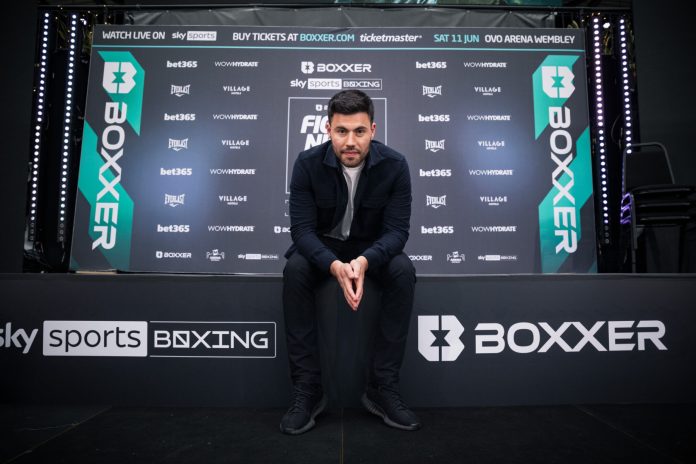Public interest and visibility in boxing is the highest it has been in years, with the sport thrust into the spotlight by a series of Saudi Arabia-based megafights. For BOXXER and its Founder/CEO Ben Shalom, the focus is on shining the spotlight on British boxing.
The essential task any boxing promoter must accomplish is to ensure their fighters get exposed to the biggest audience possible, Shalom noted in a phone conversation with Insider Sport. This is a task with a multitude of commercial caveats.
“As a promoter, your number one job is to get your fights seen by as many people as possible, and so for me having Sky and NBC is a huge milestone and boost for our business,” he says.
“What is key for us is how do we make boxing as accessible as possible, that was always the bedrock of the business. How can we reach wider audiences? You need partners who can do that.”
Finding the right partners with the right ambitions has been key in Manchester-based BOXXER’s mission to push British boxing into the limelight, and more importantly to keep it there.
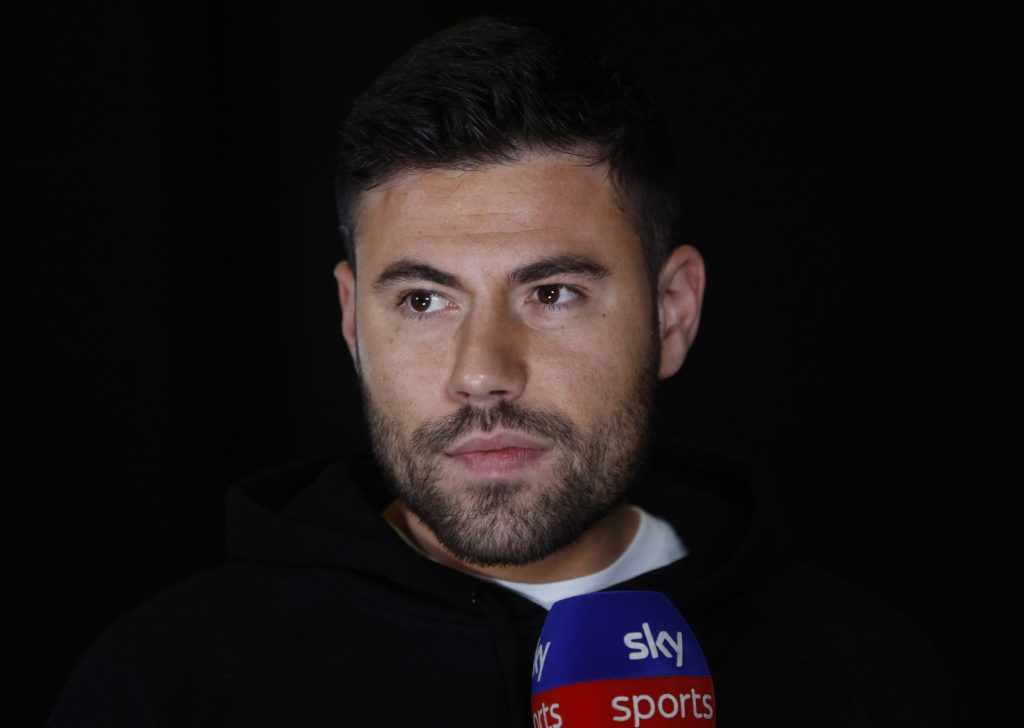
Firstly, an essential element to examine is broadcasting. The company has inked deals with two heavyweight media outlets – Sky Sports and NBC. In the case of the former, Shalom notes that the UK media giant has accumulated decades of experience as a boxing broadcaster.
Meanwhile, NBC is a household name in US sports broadcasting after building up its profile among sports audiences via its coverage of ‘huge sports’ such as the NFL, WWE and the Premier League, the latter an asset Sky is also known for its coverage of in the UK.
To take boxing to new heights, the sport needs to engage and win the hearts and minds of these audiences, Shalom remarks. A promoter’s job is to “get into as many homes as possible, and being able to cross promote from football and other combat sports is what makes boxing successful”.
Perhaps of most significance to this is that boxing relies heavily on ‘superstars’, in Shalom’s view, pointing to the likes of Tyson Fury and Anthony Joshua, two British heavyweights who have become global faces of the sport.
“When I look at British boxing, this is what it’s built on, the superstars.”
Ben Shalom
“When I look at British boxing, this is what it’s built on, the superstars,” he continues. “When you look at Anthony Joshua and Tyson Fury, they are moving towards the end of their careers, and it (UK boxing) obviously has a big job on its hands to carry the torch and that’s what Sky Sports allows us to do with the talent that we’ve got.
“Whether it’s Caroline Dubois or Ben Whittaker, especially the younger talent, being on that platform for a significant period of time, creates household names and it has done throughout British boxing history in the past 20, 30 years.”
Building storylines and creating hype for a fight is of course a vital element of promotion, and media is essential for this.
Froch vs Groves was a notable bout which came up in Insider Sport’s conversation with Shalom – not just mentioned due to this writer’s Nottingham upbringing but due to the historic significance of ‘grudge matches’ such as this 2013 clash to driving the boxing audience.
This tradition of the grudge match is a never ending trend in a sport like boxing, and is evident in BOXXER’s bills.
This can be seen in the two clashes between Chris Eubank Jr and Liam Smith, the long-awaited matchup between Amir Khan and Kell Brook, this month’s bout between Joshua Buatsi and Dan Azeez, or March’s highly anticipated showdown between Fabio Wardley and Frazer Clarke.
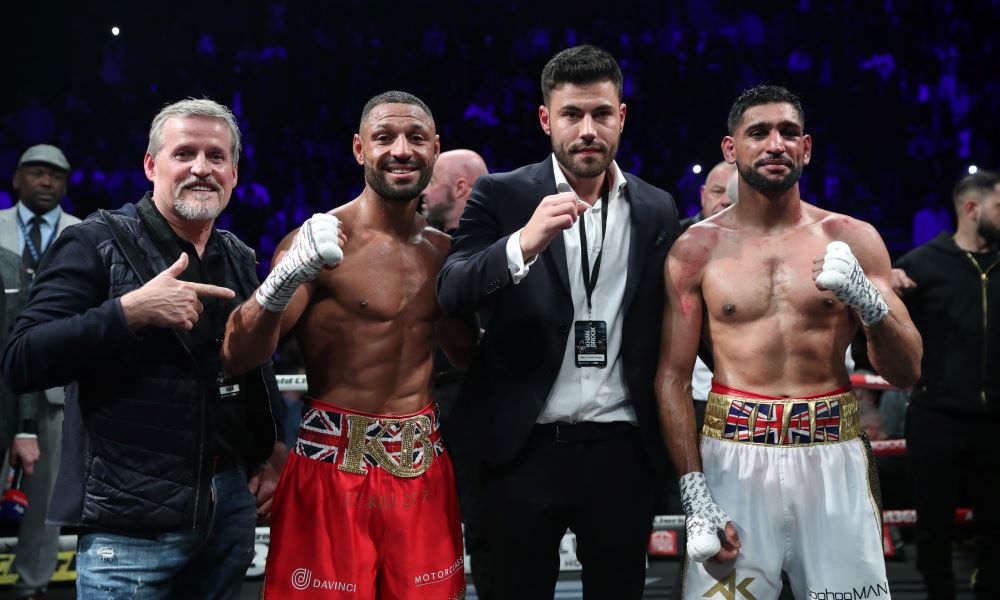
“That’s where we want to deliver, putting on the biggest British fights,” Shalom explains. “We want to create spectacles, sell out the arenas.”
Setting up some of Britain’s biggest fights with some of the world’s biggest broadcasters is clearly a high-priority for BOXXER, but it is a notable deviation from a more globalist trend emerging in the sport.
This is twofold – firstly, the rise of OTT streaming as a means of sports content consumption, and second is the increasingly dominant role Saudi Arabia is taking on in sports, particularly boxing.
Saudi Arabia is taking the game by storm, hosting some huge bouts in the heavyweight division alone – Fury vs Nganou, the former’s forthcoming undisputed matchup against Oleksandyr Usyk and the latter’s also upcoming fight with Joshua.
Whilst recognising the significance of what Riyadh Season has done for the sport – when it comes to building an audience its impact has been undeniable after all – Shalom noted that for boxing to continue growing as a sport, it has to be truly global.
“What Saudi Arabia has done in the international setting and made fights that we didn’t know were possible, bringing people together, you have to say that is extremely good for the sport and you have to commend them for that but boxing is a global sport and it has to be healthy everywhere.”
Moving onto streaming, Shalom again recognises the significance streaming has for sports in the modern, highly digitised world. However, when compared to other sporting sectors, British boxing ‘isn’t big enough’, and at this point in time ‘British boxers need to be in front of larger audiences’.
This is why whilst some promotions have been pursuing the streaming route, BOXXER has carved out its own path with the traditional broadcasters of Sky and NBC. To keep growing, British boxing must keep its visibility to other large fan bases, like football, at a peak.
“You don’t get Anthony Joshua without the football fans seeing him, you don’t get Tyson Fury being the superstar he is without the big nights,” he explains.
“Streaming is fantastic, but boxing is a niche sport, particularly in the States, and it’s probably outside the top four or five in the UK as well. The job for us is to make boxing more popular and making it a more accessible sport.
“Hiding away on streaming platforms cannot only do your clients a disservice if you’re not careful, it can also limit the potential of the sport as well, not to say that they don’t do amazing jobs and invest huge amounts of money.
“I see the value and importance of both, and you’ve got to make sure boxing is on the traditional platforms as well as the new ones.”
Whilst BOXXER’s focus is on the traditional outlets, that does not mean the company is ignoring all other avenues. Social media is a valuable tool in any company’s marketing arsenal, and boxing has a unique advantage in this regard.
“There is this onus on the athletes themselves to become as commercially relevant as possible.”
Ben Shalom
The sport is ideally suited, more so than many others, to the kind of short form content which dominates popular platforms such as TikTok and Instagram. Boxing’s ‘explosive’ moments, particularly knockouts, are well suited to this style of media consumption, Shalom explains.
“That’s what gives it such an opportunity in the digital age, the fact that it has no language barrier, it’s so easy to understand and it can create viral moments and that’s what boxing needs to focus on, as well as fighters becoming more accustomed to using platforms, promoting themselves, becoming an influencer and digital personalities.
“At the end of the day, there’s not many sports that for success require self-promotion, require becoming large personalities online. That’s another way where boxing can overtake other sports, because there is this onus on the athletes themselves to become as commercially relevant as possible.”
This all links back to the overarching task boxing promoters have, that being to ensure their boxers are seen by the widest possible audience. In this regard, BOXXER is confident that its investment in young ‘digitally native’ boxers will pay off.
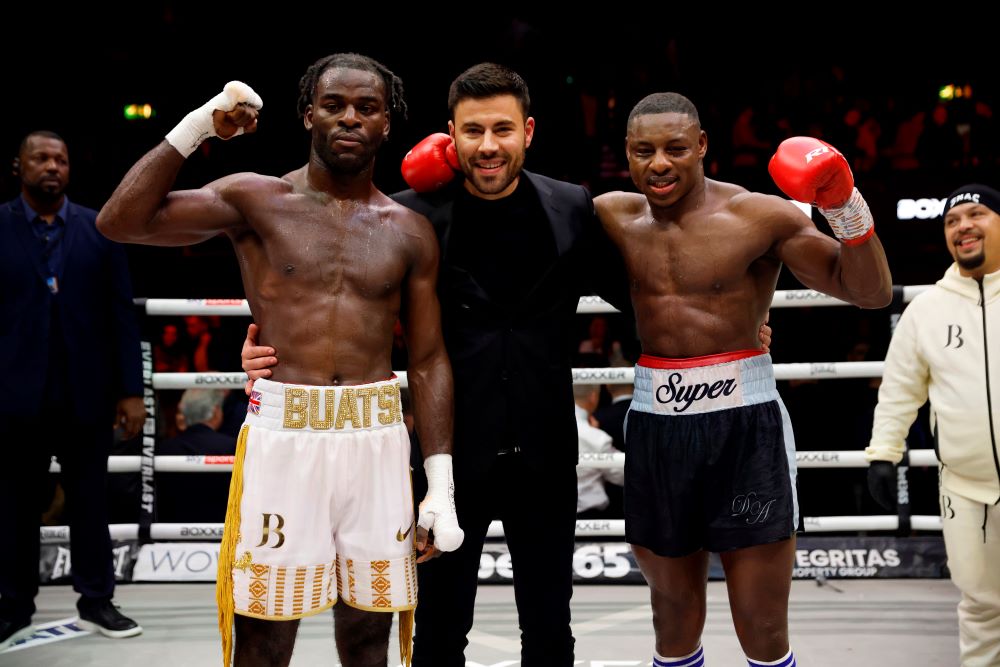
When it comes to partnerships, media is not BOXXER’s only focus, however. The company’s commercial relationships extend to many other sporting stakeholders, including betting operators – namely one of the world’s leading online bookmakers, bet365.
BOXXER first named bet365 its official betting partner in 2021, and the duo have focused heavily on the shared synergies between the respective companies – this was the focus of previous Insider Sport analysis with BOXXER’s Partnerships Manager, Rafael Bertoli-Mitchell.
“We saw into their vision and they saw into ours,” Shalom elaborated, explaining that at first BOXXER was not particularly interested in signing betting partnerships, but that the company became impressed with a bet365 vision ‘all based on trust, brand reliability and great regulation’.
He continued: “We understand how much predictions and gambling is part of the sport, but ultimately if it wasn’t for bet365 and their vision, trust and brand reliability, maybe we wouldn’t have gone down that route.
“For us it’s about finding the right partners and the ones with the right vision for the sport, and finding ones who usually wouldn’t get traditionally involved with a promoter.”
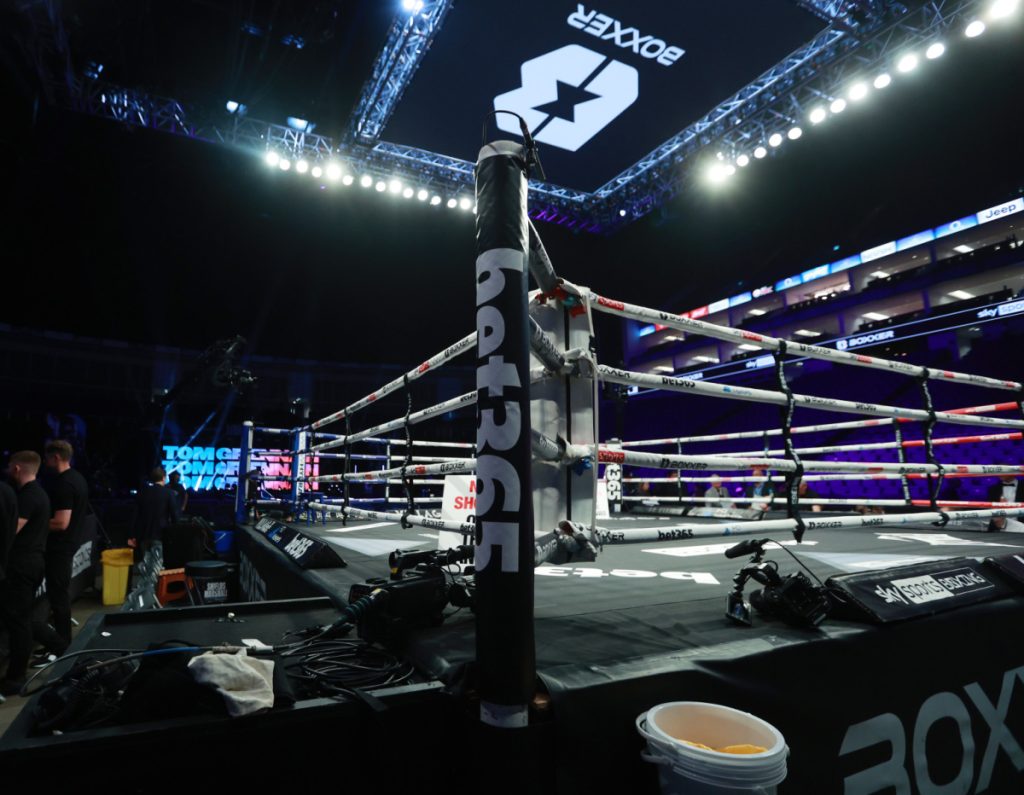
With bet365 founded just 40 miles away from BOXXER’s home city of Manchester, the promoter sees many synergies with the bookmaker, with both companies having grown from local organisations to international contenders.
“They’re very passionate about the sport, storytelling, fighter backgrounds, and are an international business with local roots similar to us,” Shalom added.
So with all this talk of company visions, Insider Sport had just one more question left for BOXXER’s CEO – what is the promoter’s own vision for the future of its sport?
For many outside observers, boxing appears to be historically shrouded in controversy, such as corruption scandals and criminal corrections to a ‘mafia’ or ‘cartel’, that it lacks transparency and is not inclusive.
This has created a challenge commercially as well, Shalom explained, adding: “Partners want to be associated with mainstream products but also products they really trust. There’s been a long time in boxing where it’s been shrouded in controversy and hard to trust.”
Dispelling these myths around the sport is essential for boxing to move forward and grow as a sport, he emphasised. This will also include working not just with media and commercial partners but various other boxing stakeholders.
“I think to me, the key is the beauty of the sport being represented properly around the world and being respected and being trusted around the world.”
Just last month, former pro-boxers Stephen and Paul Smith spoke to Insider Sport about their newly founded union for combat sports athletes, the Global Fighters Union (GFU).
As Paul Smith put it at the time, the brothers hope that ‘any decent promoter will be happy and onboard” with the GFU and its ambitions, and this is a sentiment Shalom clearly agrees with when quizzed on the issue.
“I love it,” he said. “Fighters need to be represented better in that sense. There isn’t any union, there isn’t any body. Boxing has struggled with proper governance, if any, for a long time and sometimes fighters fall foul of that.”
With enhanced governance in the form of GFU and ideal partners, whether these be media giants like Sky and NBC helping create the next superstars or leading bookmakers like bet365 helping drive storylines, boxing’s future prospects are looking bright.
“I think it needs to grow globally, for it to influence more lives inside and outside the ring, to be respected and trusted as a sport for good and a sport for purpose, a sport that changes lives,” Shalom summarised BOXXER’s vision.
“I think to me, the key is the beauty of the sport being represented properly around the world and being respected and being trusted around the world.
“That’s what I hope to happen over the next 10, 20 years, so that the perception of it completely changes.”















